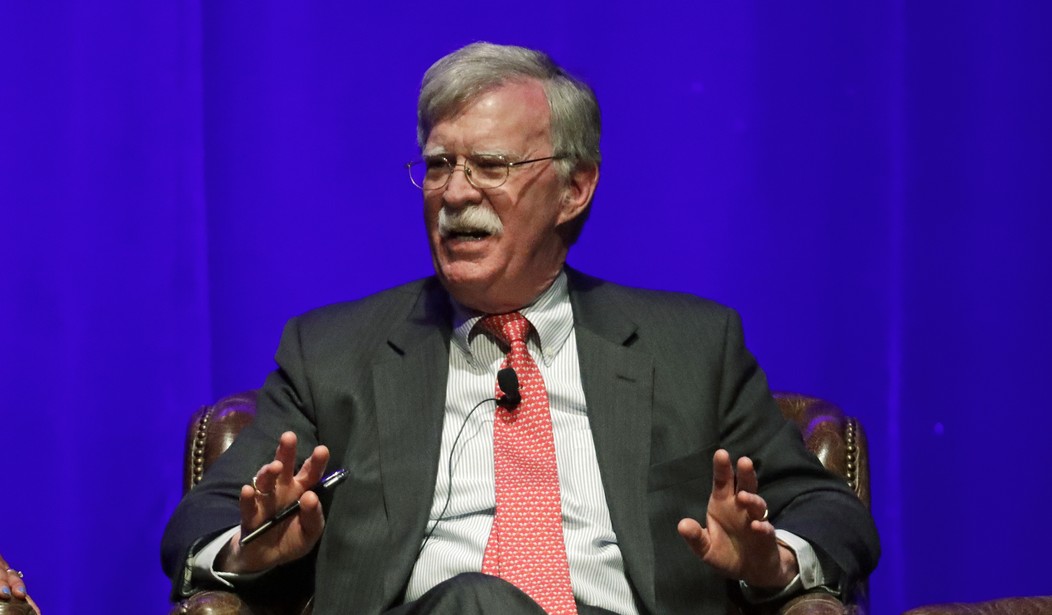The world is now shocked — shocked — to discover that President Trump’s private style is no different than his public style. He flatters foreign leaders (Xi Jinping is “the greatest Chinese leader ever”), the better to disarm them; he cares more about pleasing his constituents, for example, American farmers and industrial workers, than about the neo-conservative illusion about exporting democracy; he has a temper (certain annoying people “should be shot”); he has a diverse cabinet (“panda-huggers” like Mnuchin, free-traders like Larry Kudlow, and China hawks like Trade Representative Robert Lighthizer and Secretary of State Pompeo).
That’s the brunt of John Bolton’s tell-all White House memoir. My estimation of President Trump went up after I read the excerpts published in the Wall Street Journal (I won’t buy the book). Trump is flexible, pragmatic, unpredictable, effusive, and committed to fulfilling the promises he made to the voters in 2016. He doesn’t think it’s his job to change China’s often-repugnant domestic policies. He’s for America First, and I applaud him for it.
Shame on John Bolton for throwing a tantrum at a boss who fired him for being a rigid ideologue. Among other reasons, Trump fired Bolton because he wanted a Phase One trade deal that would help the U.S. economy. That’s still the administration’s position, as Trade Rep Lighthizer said on June 4.
Keeping the upper hand against China means playing long ball: Maintaining (or in many cases regaining) a decisive edge in military technology, building our own answer to Huawei’s presently-superior 5G mobile broadband equipment, winning the race to quantum computing, staying in the top spot in artificial intelligence and its applications. Bolton wants to wave a red flag in front of the bull, for example, by stationing U.S. troops in Taiwan. Sounds tough, but we don’t want a war with China in the South China Sea just now.
China considers Taiwan part of China. So do we: Every U.S. president from Nixon to Trump has affirmed the “One China policy,” which means that Taiwan and the Chinese mainland are the same country–somehow, some day, in some way yet unspecified. Bolton’s advice would take us close to war, if not straight to it.
China has amassed a formidable inventory of surface-to-ship missiles that probably can take out American aircraft carriers. It also has a lot of diesel-electric subs that can lurk silently on batteries and some interesting electronic warfare capacities. It has the Russian S-400 air defense system with enough range to sweep the skies over Taiwan. China has been investing massively in the control of its coasts.
We have some countermeasures (jamming planes that might disable the S-400, anti-missile devices that might reduce the effectiveness of China’s missiles, and so forth), but we won’t know who would win a war in the South China Sea unless we actually have one. And that might be the dumbest thing we ever did.
I fault President Trump for failing to do what John F. Kennedy and Ronald Reagan did — to lead a technological revival that would astonish the world. Freedom comes from strength, and strength today is technology. It’s not his fault that the United States spends just 0.6% of GDP on federal research and development, vs. more than 2% under Kennedy and 1.4% under Reagan. But we need leadership from the top. The American Compass foundation asked me to write an introduction to a set of papers on rebuilding America’s supply chains. There are a lot of good ideas in the essays written by a distinguished group of analysts. None of them will matter unless there’s leadership from the top.
But these issues never were on Bolton’s radar. He’s a brittle, rancorous, neo-conservative possessed by a utopian agenda. And his attacks on the president are shameful.










Join the conversation as a VIP Member